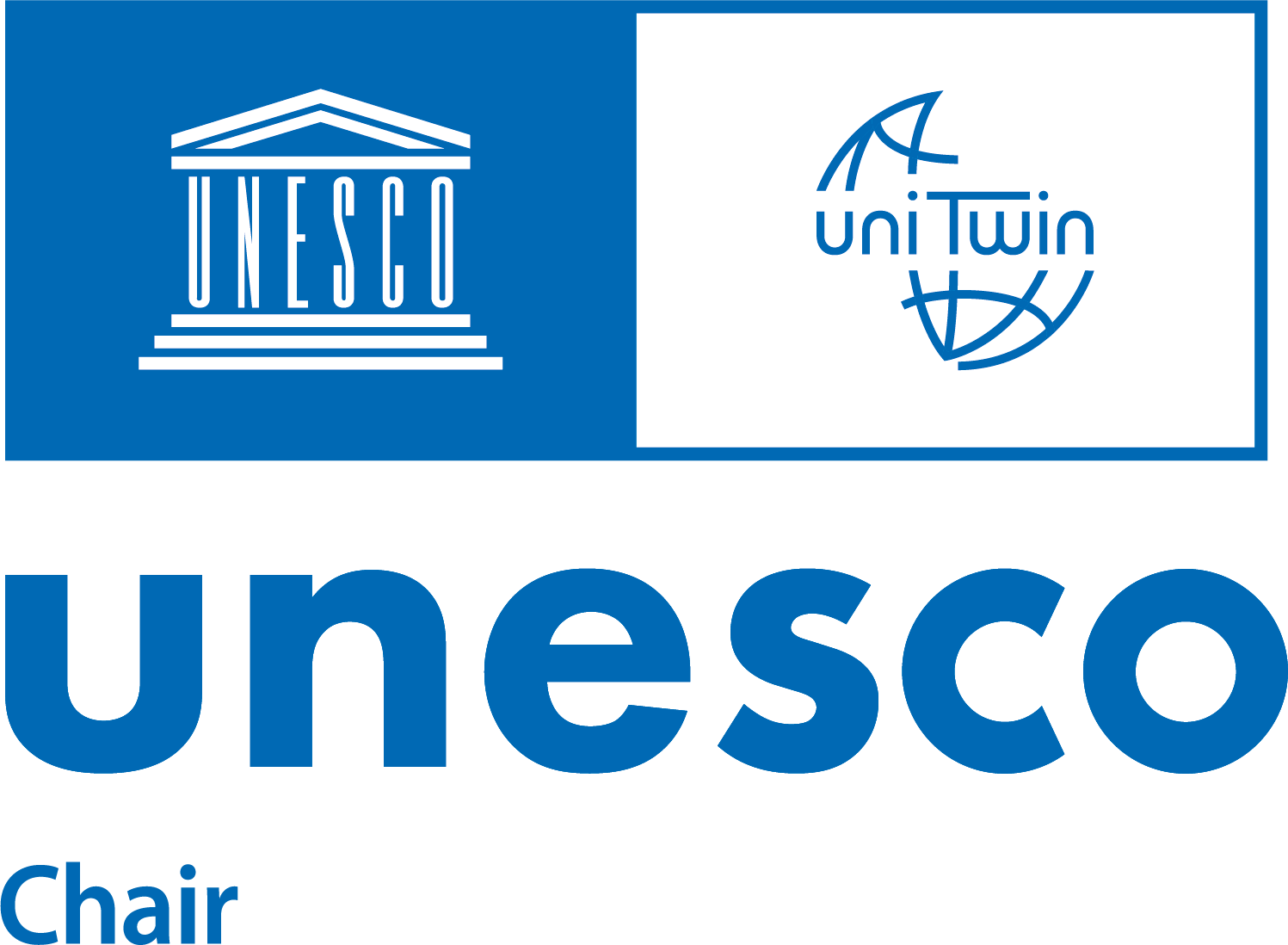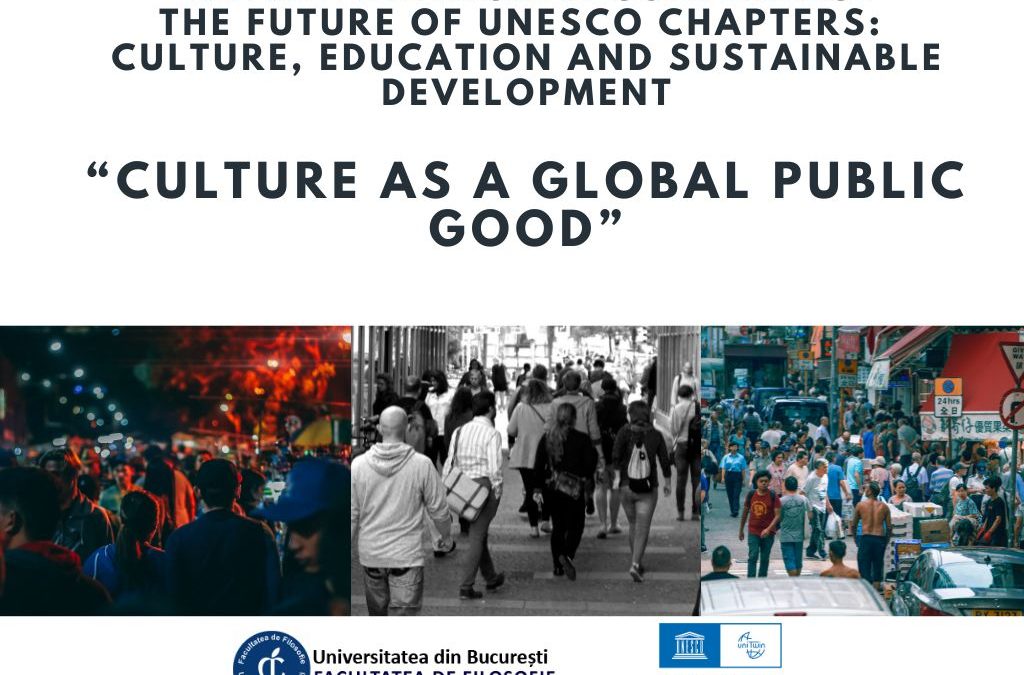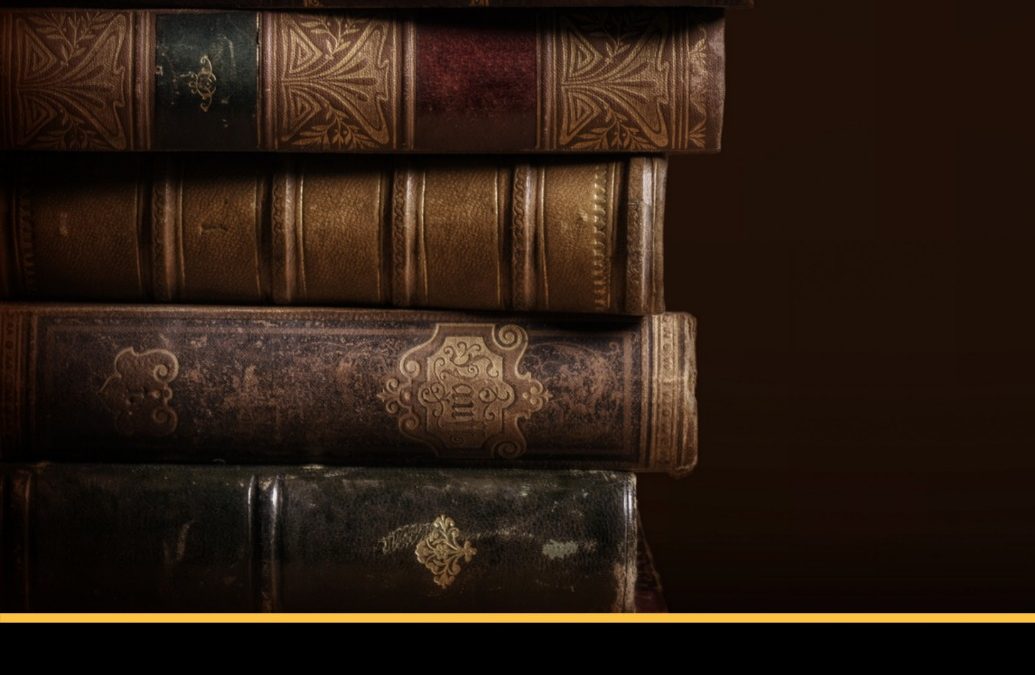Context
This event aims to bring together professors and researchers affiliated to UNESCO Chairs across Europe, in order to assess the capacities of the human capital involved by the UNESCO networks to support the 2030 Agenda for Sustainable Development, in the field of culture and education.
According to UNESCO, “the relationship between culture and sustainable development has been the subject of discussions over three decades, culminating in four United Nations General Assembly resolutions on the topic that confirm culture’s role as being both an enabler and a driver of sustainable development, and that call for the mainstreaming of culture in the international development agenda.”[1]
UNESCO, being the specialized UN agency for culture, has the crucial responsibility to monitor the relationship between culture and sustainable development, but also to contribute to the realization of proposals for public policies that can support such synergy. Although UNESCO exercises this role through its policy and normative work at the global level, including its efforts to promote the role of culture in the implementation of the recently adopted 2030 Agenda for Sustainable Development and by supporting programs and projects at national level, it is time that representatives of UNESCO educational sectors get involved in the evaluation of the standards invested in the sustainable development of culture and education.
The scope of this conference is to provide insights into the relevance, effectiveness and coherence of UNESCO’s academic communities engaged to support the policies and priorities of sustainable development. Since it is a conference organized by the UNESCO Chair of the Faculty of Philosophy of the University of Bucharest, the organizers, together with their partners, given their professional expertise, are ready to respond to UNESCO’s call to evaluate the connections between “creativity, innovation, critical thinking, resilience and empathy”[2] invested in building the society of the future, in a post-pandemic society, focused on the digitization of cultural capital and the stimulation of intercultural education. The conference aims to investigate the ways in which cultural heritage and cultural-creative industries can be integrated into a range of cross-cultural educational approaches for training young people in an equitable environment.
The urgency of evaluating the synergy between culture and education also emerges from the current geopolitical and social context, in which migration, climate changes and failures of representative and participatory democracies reflect the need to respond to such challenges by educating communities of European citizens, capable of managing these phenomena. Moreover, last year, the Final Declaration of the UNESCO World Conference for Cultural Policies and Sustainable Development, MONDIACULT 2022, was signed, with the aim of affirming culture as a global public good.
Therefore, the conference proposed by the UNESCO chair of the Faculty of Philosophy of the University of Bucharest aims to evaluate the ways in which educational and cultural cooperation between UNESCO chairs can meet the MONDIACULT objectives and the SDG objectives for the Sustainable Development Agenda for 2023.
The objectives of this first edition are:
O1. To test the capacity of the academic environment involved by the UNESCO chairs to support the 2023 Agenda for Sustainable Development and the priority strategies established by the MONDIACULT Declaration for increasing the synergy between culture and education through UNESCO public policies
O2. To assess the coherence and effectiveness of UNESCO`s public policies for culture and development.
O3. To assess the way in which the digitization of cultural heritage and the challenges faced by the creative cultural sectors in a post-pandemic society support the affirmation of culture as a global public good according to the 2022 UNESCO MONDIACULT Declaration.
O4. To develop a network of researchers and teaching staff of UNESCO chairs who can work together for projects supporting the 2023-2030 Agenda for Sustainable Development, in the fields of culture and education.
Contributors are encouraged to submit their papers inspired by one of the following proposed topics:
- Cultural mediation and negotiations;
- Culture as a global public good;
- Educational challenges in teaching cultural heritage;
- Digitalization of cultural heritage;
- The role of culture in supporting SDG strategies;
- Sustainable development at the cross-roads of culture and education;
- Intercultural communication and intercultural sustainability;
- Academic response to the list of objectives and priorities developed by UNESCO through the 2022 statement MONDIACULT;
- Philosophical approaches of cultural sustainability, cultural heritage and culture as a common good.
Deadline and submission
Contributions (including an abstract of 300 words, title and a short professional bio in English) are expected to be submitted no later than the 1st of July 10tth of September 2023, at https://forms.gle/6YwJA3bWiGY7Vq257 Evaluation results will be communicated to participants before July 20 September 13, 2023.
The conference will be held at Bucharest, at the UNESCO Chair in Interculturality, Good Governance and Sustainable Development, on the 2nd of October 2023.
Organizing Committee
- Prof. PhD. Viorel Vizureau, Dean of the Faculty of Philosophy, University of Bucharest, Romania
- PhD. Lecturer Oana Șerban, Executive Director of the Research Center for the History and Circulation of Philosophical Ideas, Faculty of Philosophy, University of Bucharest, Romania
- PhD. Candidate Lilian Ciachir, Coordinator of the UNESCO Chair, Faculty of Philosophy, University of Bucharest, Romania
Organizing Institutions
- Faculty of Philosophy, University of Bucharest, Romania
- The UNESCO Chair in Interculturality, Good Governance and Sustainable Development, Faculty of Philosophy, University of Bucharest, Bucharest, Romania
- CCIIF – The Research Center for the History and Circulation of Philosophical Ideas, Faculty of Philosophy, University of Bucharest, Bucharest, Romania
Scientific Committee
- Prof. PhD. Franz-Lothar Altmann, Associate Professor, UNESCO Chair in Interculturality, Good Governance and Sustainable Development, Faculty of Philosophy, University of Bucharest, Bucharest, Romania
- Prof. PhD. Alex Frame, University of Burgundy, Dijon, France
- Prof. PhD. Tobias Goessling, KEDGE Business School, Marseille, France
- Associate Prof. PhD. Cristian Iftode, Faculty of Philosophy, University of Bucharest, Bucharest, Romania
- Prof. PhD. Veronique Parissot, Director of the Institute Denis Diderot for Education, Formation and Culture, University of Burgundy, Dijon, France
- Prof. PhD. Habil. Mugurel Păvălucă, Department of Humanities and Theology, Technical University Dortmund, Dortmund, Germany
- Prof. PhD. Pia Stalder, Business School Institute for Marketing and Global Management, Bern University of Applied Sciences, Bern, Switzerland
- Prof. PhD. Thomas Steger, Faculty of Business, Economics, and Management Information Systems, University of Regensburg, Regensburg, Germany
- Prof. PhD. Thomas Straub, Geneva School of Economics and Management, University of Geneva, Geneva, Switzerland
[1] UNESCO’s work on culture and sustainable development: evaluation of a policy theme, IOS/EVS/PI/145 REV.5 (REV.8 in Fre), 2015.
[2] https://www.unesco.org/en/culture-education








